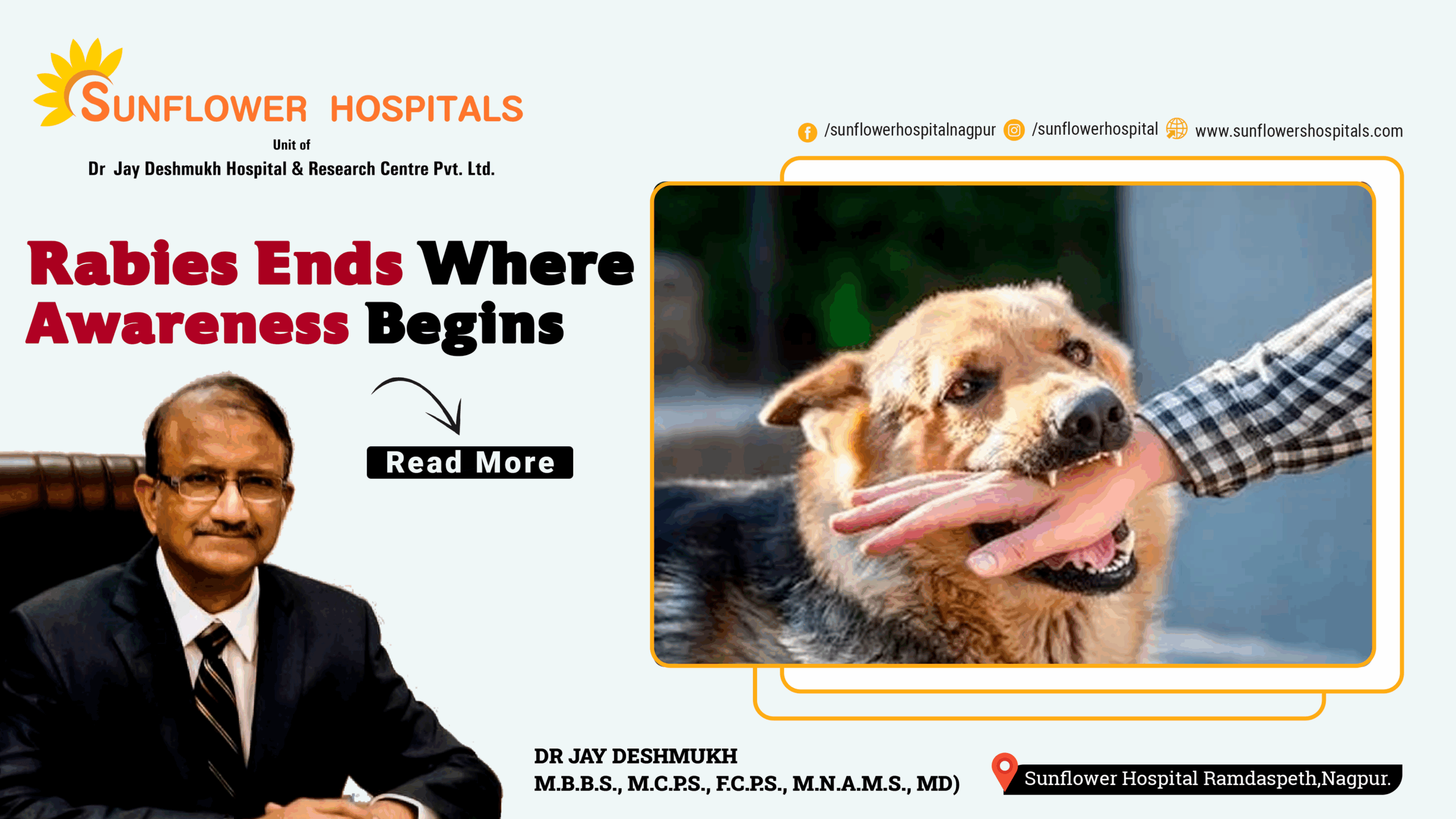What is rabies?
Rabies is a viral disease of the nervous system, caused by the rabies virus. Once symptoms appear, it is almost always fatal
How is rabies transmitted?
The virus is usually spread through the bite or scratch of an infected dog, but other animals (cats, monkeys, bats) can also transmit it.
What are the early symptoms?
Fever, headache, tingling at the bite site, followed by anxiety, confusion, difficulty swallowing, hydrophobia (fear of water), and progressive paralysis.
What should be done immediately after a dog bite?
Wash the wound with soap and running water for 15 minutes, apply antiseptic (like povidone-iodine), avoid tight bandaging, and consult a doctor immediately for vaccination advice.
Do all dog bites cause rabies?
No. Not all dogs carry the rabies virus, but you can’t take chances. Every dog bite should be treated as potentially risky.
What is post-exposure prophylaxis (PEP)?
This life-saving treatment after exposure includes a series of rabies vaccination injections and rabies immunoglobulin for severe, deep bites.
Is rabies curable once symptoms appear?
Sadly, no effective cure exists once rabies symptoms start. This is why prevention and vaccination are critical.
Can rabies be prevented?
Yes. With timely vaccination of bite victims, mass dog vaccination programs, and responsible pet care, rabies can be eliminated.
Should we fear all stray dogs?
No. While stray dogs are the most common source of bites, not all carry rabies. The focus should be on vaccination and population control, not cruelty.
Author: Dr Jay Deshmukh
Dr Jay Deshmukh is Chief Physician and Director, Sunflower Hospital, Nagpur Honorary Physician to Honorable Governor of Maharashtra and PondicherryCentral. Dr Jay Deshmukh is an M.B.B.S., M.C.P.S., F.C.P.S., M.N.A.M.S., MD From Internal Medicine – Bombay and New Delhi.


